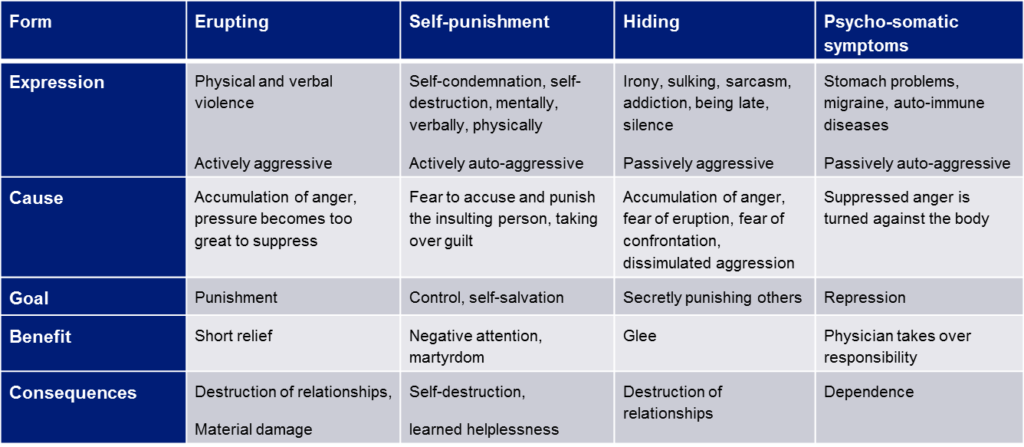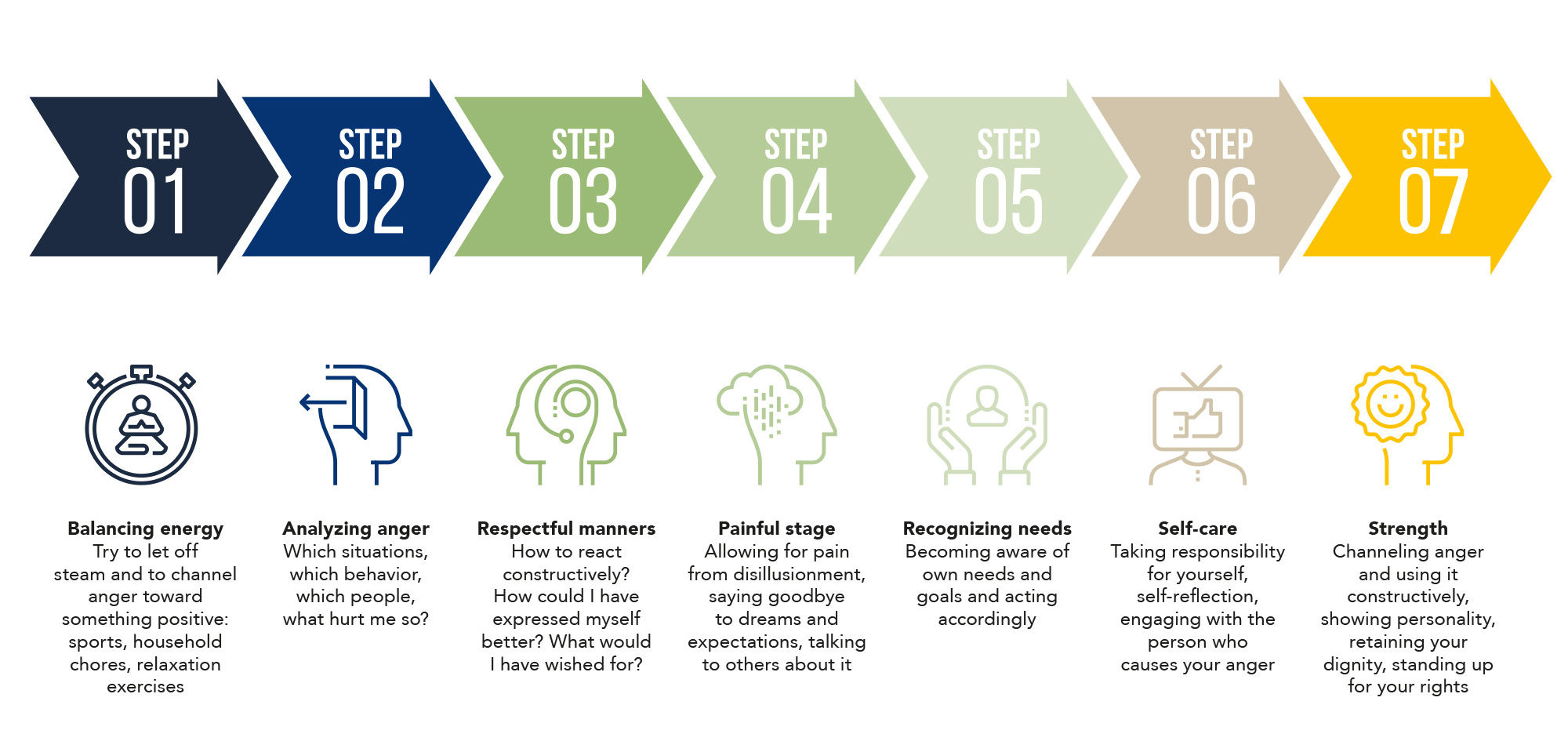When anger is good for you – and when it becomes dangerous
No fear of emotions
Some people scream when they’re angry. Others remain silent and bottle up their anger. There are angry people who withdraw, are offended, despise or criticize others. Anger manifests itself very differently, it may mean aggression, wrath, defiance, bitterness – but sometimes also irony or sarcasm. What’s behind all this?
Anger is perceived very differently depending on the experiences you had with it in childhood. Those who experienced anger as the trigger for conflicts, which were thus resolved, interpret it positively. Those who associate anger with the escalation of conflicts interpret it negatively.
Positive anger
I’m angry at my girlfriend who’s always 10 minutes late. I tell her it makes me angry that I always have to wait for her. I feel like I’m not important enough to her. She’s very upset. I am important to her. She hugs me and resolves to be on time from now on. Even if she were not always to succeed the conflict has been verbalized, which leads to less negative energy and bad feelings.
Negative anger
My father used to be irritable when he came home after a difficult workday (insult). When we kids were noisy and romping around he’d start screaming for us to be quiet. Often he struck out of the blue. Still today I tend to curl up when someone gets angry and expresses this with some vehemence.
Confronting someone with accumulated anger can be liberating. At the same time situations in which someone was confronted with anger can be perceived and remembered as very difficult. Those who tend to avoid conflicts often made negative experiences with disputes in the family. They swallow their anger and resentment, bitterness or even hatred accumulates in them. Some later react to conflicts with verbal or physical violence themselves – just like they learned. The different categories of destructive anger management can be found in the table below.

Anger as a feeling never comes alone. Often it is coupled with fear, sadness or helplessness. This is why it is important to recognize the constellations in which anger arises in order to find its cause.
Ask yourself:
- Why do I get angry?
- When do I get angry?
- What makes me angry?
- Then how do I react? How do the others notice my anger?
- Are there any situations in which anger leads to a constructive discussion?
Consciously controlling anger
Anger can be helpful – if it helps process an insult. There are several stages in this process:

First of all it is important to calm down and to balance your energy to get a clear head and not to do anything rash. Some people find it helpful to exercise, others prefer to play and instrument, clean the windows, buy a bouquet of flowers or to do breathing and relaxation exercises.
A next phase is anger analysis and self-reflection. It is important to find out which situations, which behavior, which people cause anger in you and why:
- What hurt you so?
- What exactly was hurt?
- Your dignity?
- Your position?
- Your authority?
- Did you turn to the person who triggered your anger?
- What did you want to achieve with your reaction?
- Punishment?
- Revenge?
- Hurt?
- To address the conflict?
- To change something in the long term?
- What actually did you achieve?
Maybe then you will realize that your reaction tends to follow a set pattern where in the end both you and your counterpart are frustrated.
As a next step think about how you could change your behavior to reach your goal. Maybe you were not properly understood. In that case, finding other means of expressing yourself may help: seriously rather than ironically, quietly instead of loudly, factually instead of emotionally, in writing rather than orally. A conflict may always happen at the same place, time, or in the same situations. Breaking out of such patterns could then be useful.
Before you can change your behavior, though, it is important to realize that you have experienced a hurtful insult that is still painful. Maybe you are disillusioned, you may have to bury a dream or cancel your plans. Be honest with yourself and allow yourself to become fully aware of your situation. It helps to talk to others and to see clearly what expectations you may have harbored in your counterpart – and that these expectations will now not be fulfilled.
Taking responsibility and freeing yourself
As you begin to take care of yourself, become aware of your needs and goals and act accordingly you take responsibility for your life. Talk to the person who makes you angry. Think of a good reaction for the next situation where anger boils over. Justify your anger, say what you want to change. This is how you can finally free yourself, channel anger and use it constructively. You demonstrate your personality, retain your dignity, stand up for your rights. This makes you strong and lets you mature.
Time is key to processing anger. Don’t be overly harsh on yourself. Take it easy. Think before you act. And: Don’t let anger spoil it all, your mood, the beautiful moments in life. It’s simply not worth it!
We at Proitera are happy to assist you on your way to strength and maturity through the different stages of anger management.
